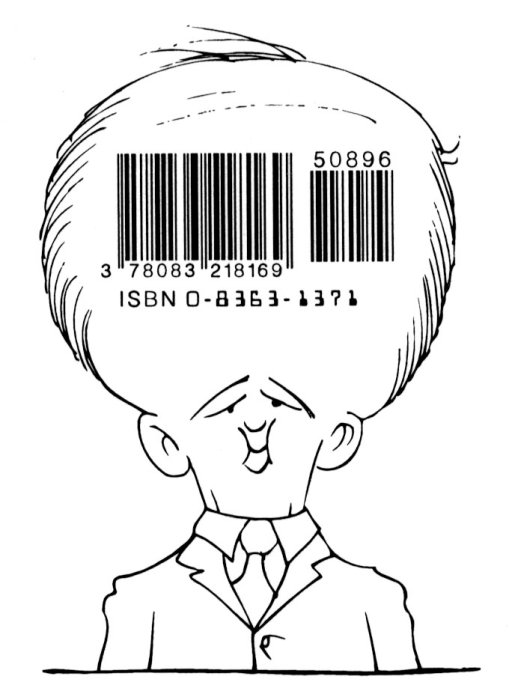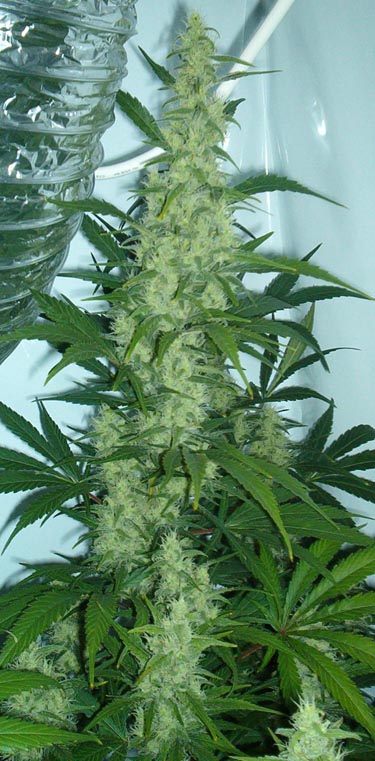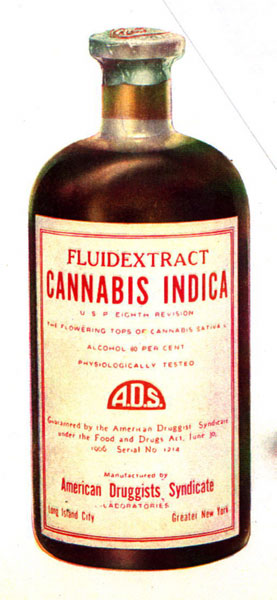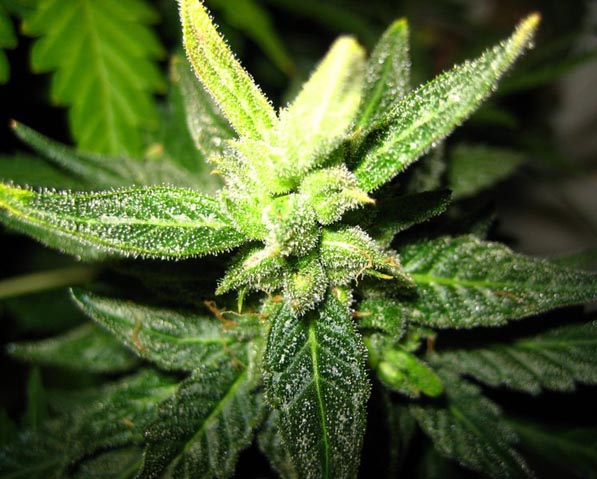|
|||||||||||||
Punkerslut to the Food and Drug Administration, USA (FDA, USA)... Greetings, There is a rather urgent matter in the medical field, that should have every oncologist and physician breaking down your door. The documentary "Running From the Cure," as well as national cancer journals, are now seriously suggesting that Marijuana can cure cancer. Instead of belaboring this point, I'll cut to the straight evidence:
As you can see, quite clearly, there is a tremendous amount of research available that suggests that Marijuana can effectively treat cancer. The implications are far more than just that. It is not simply just able to treat cancer, but it has shown a greater ability to treat cancer than any presently existing medications or treatments. The first of these studies, in fact, dates back to 1975. [*11] Are the masters of the national healthcare system, then, resistant to the cure for cancer? It would seem that way, since many of these studies were forcibly shut down. That would mean that, for thirty years, the FDA, the National Institutes of Health, and the National Institute of Drug Abuse -- have all known that their actions contributed towards concealing the cure for cancer. In fact, after much correspondence with NIDA, they have withdrawn from their position that Marijuana causes cancer. Originally, they had claimed in their publication "NIDA: Marijuana Infofacts," : "Smoking marijuana possibly increases the likelihood of developing cancer of the head or neck. A study comparing 173 cancer patients and 176 healthy individuals produced evidence that marijuana smoking doubled or tripled the risk of these cancers." Today, this has been removed, and now reads: "Marijuana smokers show dysregulated growth of epithelial cells in their lung tissue, which could lead to cancer;8 however, a recent case-controlled study found no positive associations between marijuana use and lung, upper respiratory, or upper digestive tract cancers.9 Thus, the link between marijuana smoking and these cancers remains unsubstantiated at this time." The National Institute of Drug Abuse have slightly changed their position. They have fallen short of what I requested of them: that they completely abandon their position, and advocate in every single press release, and every publication, that Marijuana needs to be completely legalized. Not just legalized for small amounts, or for patients. What a complete waste of time! I'm talking about complete legalization for massive, widespread production, distribution, and consumption, by any human being, by any individual. Here you are, holding the cure for cancer in your tiny hands, and you're asking yourself questions like, "Should I release one finger on my hold, and let only the patients on death's door have the cure? Or should I release two fingers, and let all who are sick have medicine?" What I want is for you to release your grip entirely -- advocate that the only way to prevent this cancer epidemic is complete legalization. It's not just enough that small doses should be let into hospitals, under lock and key and guard, waiting for someone to be within the throes of non-existence. We need to encourage a social policy that makes Marijuana so cheap, that farmers will give away the cure to cancer! All other attempts or suggestions at treating cancer have simply produced expensive medicines -- all sorts of treatments are available today for cancer. But they are restricted to the rich, the wealthy, and the heads of government. Ah, yes, the Food and Drug Administration -- its executives and lobbyists have salaries that can afford the cure for cancer, but when they have the option to make a cure widely available, you SHRINK BACK! It is the old tale of the union delegate, who received a pay increase in exchange to convince the workers to take a pay cut. Why Marijuana hasn't been released and pushed into the public's light as the cure for cancer is simply too obvious. It is a reason that goes back to the intensive corruption and exploitation of the Chinese dynasties; in the words of the immortal Mikhail Bakunin, "Power corrupts the best!" And you, my dear Food and Drug Administration, have been completely corrupted. You have been quiet for too long. Even if the legislators replace the regulators of the FDA for advocating Marijuana legalization, it is better than any other option; it is better than remaining silent, while the millions suffer untold miseries in our hospitals, or worse yet, in our streets. Please, I'm expecting a response. Thank you. Sincerely, Resources *1. Oncogene. 2008 Jan 10;27(3):339-46. Epub 2007 Jul 9. "Delta9-Tetrahydrocannabinol inhibits epithelial growth factor-induced lung cancer cell migration in vitro as well as its growth and metastasis in vivo." By Preet A, Ganju RK, Groopman JE; Division of Experimental Medicine, Department of Medicine, Beth Israel Deaconess Medical Center, Harvard Medical School, Boston, MA, USA. NCBI Page *2. Journal of the National Cancer Institute, 2007. "Inhibition of Cancer Cell Invasion by Cannabinoids via Increased Expression of Tissue Inhibitor of Matrix Metalloproteinases-1." By Robert Ramer, Burkhard Hinz; Institute of Toxicology and Pharmacology, University of Rostock, Rostock, Germany. JNCI Page *3. Cancer Res. 2008 August 1; 68(15): 6468–6476. "Loss of cannabinoid receptor 1 accelerates intestinal tumor growth." By Dingzhi Wang,1 Haibin Wang,2 Wei Ning,1 Michael G. Backlund,1 Sudhansu K. Dey,2,3,4 and Raymond N. DuBois5,6*; 1) Department of Medicine, Vanderbilt University Medical Center, Nashville, TN 37232-6838. 2) Department of Pediatrics, Vanderbilt University Medical Center, Nashville, TN 37232-6838. 3) Department of Cancer Biology, Vanderbilt University Medical Center, Nashville, TN 37232-6838. 4) Department of Cell & Developmental Biology, Vanderbilt University Medical Center, Nashville, TN 37232-6838. 5) Vanderbilt-Ingram Cancer Center, Nashville, TN 37232-6838. 6) Departments of Gastrointestinal Oncology and Cancer Biology, The University of Texas MD Anderson Cancer Center, Houston, TX 77030. Selection quoted from "Marijuana Takes on Colon Cancer," by Aria Pearson, August 2008, New Scientist. New Scientist Page Pub Med Central Page *4. Published in 2007, November, Molecular Cancer Therapeutics. Quoted from "Cannabis Compound May Stop Metastatic Breast Cancer," by Carolyn Colwell, U.S. News, 11/19/2007, US News Link . Washington Post Page *5. "Marijuana May Stall Brain Tumor Growth: Active Ingredient in Marijuana Inhibits Cancer Growth in Early Study," By Jennifer Warner, WebMD Health News, Reviewed by Michael W. Smith, MD, Aug. 15, 2004, WebMD Page. *6. "Cannabinoids selectively inhibit proliferation and induce death of cultured human glioblastoma multiforme cells," Sean D. Mc Allister Contact Information, Calvin Chan, Ryan J. Taft, Tri Luu, Mary E. Abood, Dan H. Moore, Ken Aldape and Garret Yount, California Pacific Medical Center Research Institute, 475 Brannan St., Suite 220, San Francisco, CA 94107, USA, Department of Epidemiology and Biostatistics, University of California San Francisco, San Francisco, CA, USA, Department of Pathology, University of Texas MD Anderson Cancer Center, Houston, TX, USA. Volume 74, Number 1 / August, 2005. Springer Page *7. "Inhibition of tumor angiogenesis by cannabinoids," The FASEB Journal. 2003;17:529-531. CRISTINA BL ZQUEZ2, M. LLANOS CASANOVA*,2, ANNA PLANAS{dagger}, TERESA G MEZ DEL PULGAR, CONCEPCI N VILLANUEVA{ddagger}, MAR A J. FERN NDEZ-ACE ERO{ddagger}, JULI N ARAGON S , JOHN W. HUFFMAN||, JOS L. JORCANO* and MANUEL GUZM N3, Department of Biochemistry and Molecular Biology I, School of Biology, Complutense University, Madrid, Spain; * Project on Cellular and Molecular Biology and Gene Therapy, CIEMAT, Madrid, Spain; {dagger} Department of Pharmacology and Toxicology, IIBB-CSIC, IDIBAPS, Barcelona, Spain; {ddagger} Department of Pathology, Hospital General de M stoles, Madrid, Spain; Department of Immunology, Hospital de la Princesa, Madrid, Spain; and || Department of Chemistry, Clemson University, Clemson, South Carolina, USA, 3Correspondence: Department of Biochemistry and Molecular Biology I, School of Biology, Complutense University, 28040 Madrid, Spain, January 2, 2003. FASEB Page *8. "Antitumor Effects of Cannabidiol, a Nonpsychoactive Cannabinoid, on Human Glioma Cell Lines," First published on November 14, 2003; DOI: 10.1124/jpet.103.061002, Paola Massi, Angelo Vaccani, Stefania Ceruti, Arianna Colombo, Maria P. Abbracchio, and Daniela Parolaro. ASPET Link *9. "Mechanism of Extracellular Signal-Regulated Kinase Activation by the CB1 Cannabinoid Receptor," Ismael Galve-Roperh, Daniel Rueda, Teresa G mez del Pulgar, Guillermo Velasco, and Manuel Guzm n, Department of Biochemistry and Molecular Biology I, School of Biology, Complutense University, Madrid, Spain. Molecular Pharmacology, Vol. 62, Issue 6, 1385-1392, December 2002. ASPET Page *10. Life Sciences, Volume 77, Issue 14, 19 August 2005, Pages 1723-1731. "Cannabinoids and ceramide: Two lipids acting hand-by-hand," by Guillermo Velasco, Ismael Galve-Roperh, Cristina S nchez, Cristina Bl zquez, Amador Haro and Manuel Guzm nCorresponding Author Contact Information, Department of Biochemistry and Molecular Biology I, School of Biology, Complutense University, 28040 Madrid, Spain. 14 June 2005. Science Direct Page *11. "Antineoplastic activity of cannabinoids," Journal of the National Cancer Institute, Vol. 55, No. 3, September 1975, pp.597-602, by A.E. Munson, L.S. Harris, M.A. Friedman, W.L. Dewey, and R.A. Carchman. Erowid Page
The Food and Drug Administration, USA (FDA, USA) to Punkerslut... Dear Mr. Carloff: Thank you for your comments to the Division of Drug Information in Center for Drug Evaluation and Research at the Food and Drug Administration. Marijuana is not an FDA-approved drug product, therefore, the FDA cannot authorize the use of marijuana for medicinal purposes. Marijuana is regulated by the Drug Enforcement Administration (DEA) under the Controlled Substances Act (CSA). Therefore, the FDA cannot comment on the legalization of marijuana. You may be able to obtain information about the legalization of marijuana directly from the DEA at the following address:
I would, however, like to share with you some information pertaining to the medicinal use of marijuana, which I hope you find useful. Although smoked marijuana is not an FDA-approved drug product, the active ingredient in marijuana (THC) was studied in clinical trials. It was approved for marketing by the FDA (as dronabinol, trade name Marinol) in 1985 for nausea associated with chemotherapy, and it was also approved in 1992 for treatment of appetite loss or anorexia associated with weight loss in patients with AIDS. The FDA has had many inquiries about the medicinal use of marijuana. One of the proposed medicinal uses of marijuana is for appetite stimulation in patients with HIV-wasting syndrome. A major concern in the medicinal use of marijuana is the considerable variability in the composition and quality of marijuana from supply to supply. Marijuana may be biologically contaminated with salmonella or fungal spores and marijuana cigarette smoke may contain polyaeromatic hydrocarbons which are carcinogenic. These conditions would be a concern for anyone, but especially for patients with compromised immune systems, such as HIV patients. As of February, 1997, eight persons were receiving marijuana under a single Patient Investigational New Drug (IND) program approved by the FDA. Marijuana was first provided to an individual in a single patient IND as a result of a court order in 1978. The marijuana was supplied in the context of experimental treatment of a medical condition (glaucoma). Over time, additional IND's were approved, following application from the physicians of the patients, to receive marijuana as part of the IND, for experimental treatment of medical conditions. A total of 14 patients ultimately received treatment under this program. In 1992, FDA ceased approving new patients to receive marijuana under the single patient IND program, since the approved THC-containing drug was available and the potential contaminants in smoked marijuana posed unnecessary hazards. This policy was reexamined in 1994 and reaffirmed. The Health and Human Services Assistant Secretary for Health, Philip R. Lee, M.D., who carried out the review, found that "after carefully examining the existing pre-clinical and human data, there is no evidence to suggest that smoked marijuana might be superior to currently available therapies for glaucoma, weight loss associated with AIDS, nausea and vomiting associated with cancer chemotherapy, muscle spasticity associated with multiple sclerosis, or intractable pain." In addition, the review found that the single patient IND was insufficiently designed or controlled to produce useful data about the efficacy of smoked marijuana as a therapy. Those already enrolled in the IND program, however, were allowed to continue. As with all experimental therapies, the FDA is willing to consider proposals by investigators to conduct clinical trials using marijuana. Such trials, if proposed, would be reviewed under FDA's current regulations governing the use in humans of investigational new drug substances and the requirements of approval for a new medication. Because marijuana is a Schedule I controlled substance, it is subject to the Controlled Substances Act (CSA) and there are additional requirements for conducting research. The CSA requires researchers who conduct studies on Schedule I substances to register with the Drug Enforcement Agency (DEA). Agencies of the Public Health Service and DEA work together during DEA's review of the researcher's CSA registration application. Additional information concerning research on the medical use of marijuana may be available from the National Institutes of Health, particularly the National Cancer Institute (NCI) and the National Eye Institute (NEI). The addresses are as follows:
Additional information about marijuana may also be available from the Office of National Drug Control Policy (ONDCP) and the National
Institute on Drug Abuse (NIDA) at the following addresses: National Institute on Drug Abuse I hope this information is helpful. If, after reviewing this information, you have any unanswered questions, please contact the Division of Drug Information by phone or e-mail . Thank you again for your message. Division of Drug Information
Punkerslut to the Food and Drug Administration, USA (FDA, USA)... Greetings, Thank you for the response to my letter on Marijuana and cancer. The crux of the argument seems to be this, "Marijuana is not an FDA-approved drug product, therefore, the FDA cannot authorize the use of marijuana for medicinal purposes." This is, in fact, my entire point. The FDA should approve Marijuana for medical uses. The Controlled Substances Act gives the FDA the duty of making a judgment on whether a drug ought to be controlled or not. According to Wikipedia's page for Controlled Substances Act, "Two federal agencies, the Drug Enforcement Administration and the Food and Drug Administration, determine which substances are added or removed from the various schedules, though the statute passed by Congress created the initial listing." I'm not asking for "smoked marijuana" as a medicine. I'm suggesting that an organic extraction of Marijuana should be used for treating cancers and tumors. The cannabinoids present in the plant are what have demonstrated an anti-cancerous effect. At least, I haven't been able to find any studies correlating smoked Marijuana with an improved prognosis. Do a Human In Vivo model, and a cell culture In Vitro model, with topical application of a marijuana, alkaloid extract onto the cancerous or tumorous region. I'm sure your studies would have results matching the scientific community's. Considering that the studies do affirm my theory about marijuana as a treatment to cancer -- would the FDA be willing to approve Marijuana alkaloid extract as a medicine? Sincerely,
The Food and Drug Administration, USA (FDA, USA) to Punkerslut... Dear Andy: Approvals are made based on safety and efficacy data, if such information is conveyed in valid clinical studies, then approval of marijuana for medicinal use is a possibility. However, an application for new drug approval would need to be submitted to the FDA for any such consideration. If you would like general information about CDER and the drug review process visit the CDER Handbook at: http://www.fda.gov/cder/handbook/index.htm Select New Drug Development and Review to see a flow chart of the drug review process. Click anywhere in the diagram to link to detailed information about each step. The Drug Approval Application process is at: http://www.fda.gov/cder/regulatory/applications/default.htm Please visit http://www.fda.gov/cder/fdacomser.htm and review the FDA consumer articles with information about CDER and Our Drug Review Process. If you would like general information about CDER and small business
assistance go to: Division of Drug Information
|






